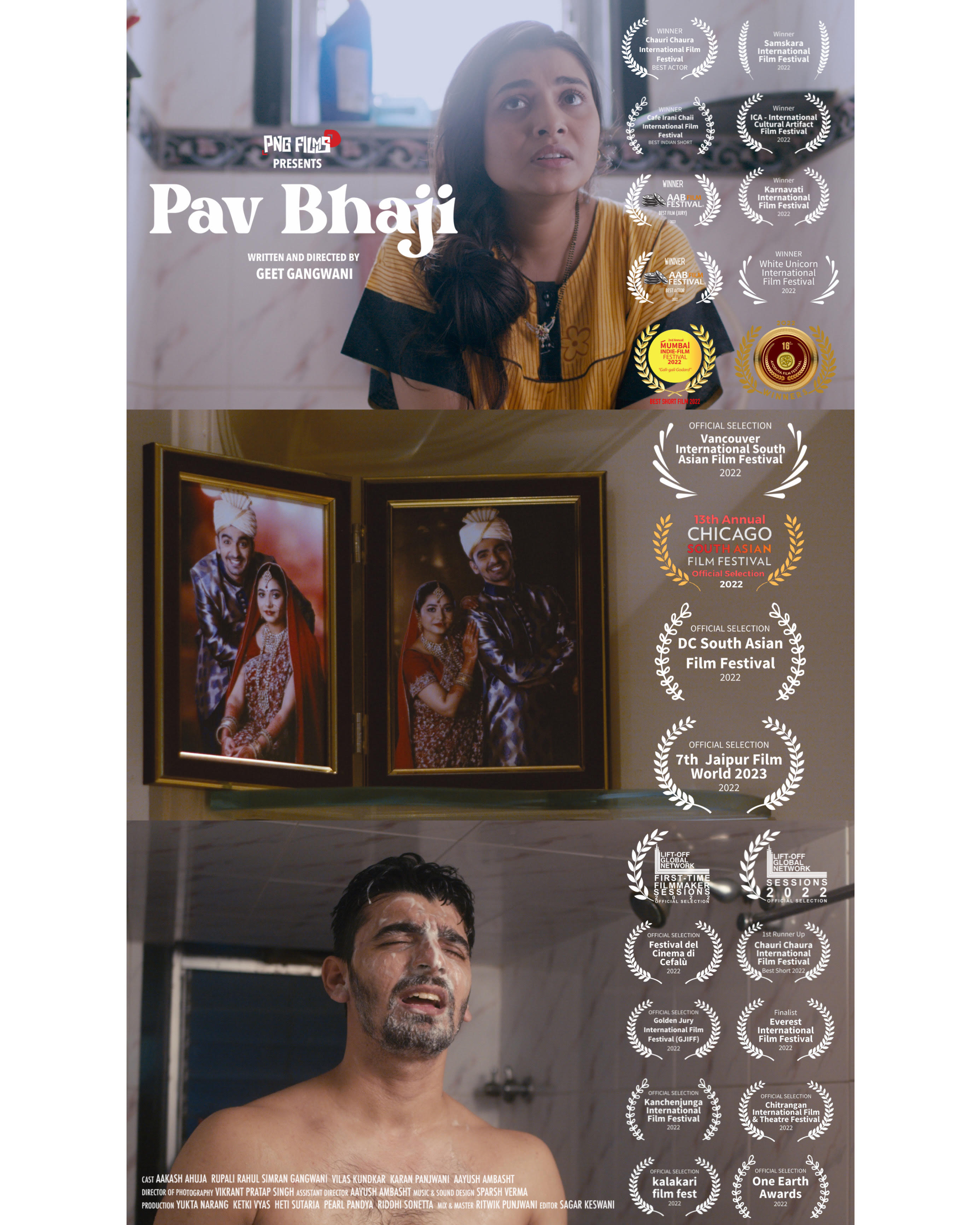
IVWFF 2020 Film Review “Nasir”
WATCH THE TRAILER HERE
First, the Recap:
Consider the makeup of daily existence. How does it appear for you? Is it filled with that early morning vim and vigor to face the day, only to find tiredness awaiting upon evening’s arrival? Or is it the opposite, where the dawn harkens far too soon and the nighttime brims with energy? Either way or anything in between, we find some pattern, some path, some means to follow a set plan. However, it all comes down to whether it sees us fulfilled–or longing for more. In the close quarters of the ghetto, everyman Nasir (Valavane Koumarane) awakens to another new day, going about a literal routine that has unfolded countless times before as he cares for his wife Taj (Sudha Ranganathan), ailing mother Fatima (Yasmin Rahman), and nephew Iqbal (Sabari). Yet, even as the day progresses with his apparel store job, Nasir ponders what life he actually has, even as fate underscores his path back home.
Next, my Mind:
One of the more fascinating aspects that this critic feels is sometimes present when it comes to independent cinema is that I believe it isn’t always about entertainment, but rather conveying a literal visual examination of the facets that make up humanity, put on screen to be the necessary catalyst for us to contemplate the narrative’s intent and, ideally, apply what we’ve learned towards the betterment of all who live on this planet. With this newest 85-minute feature film effort from writer/director Arun Karthick, producer/executive producer Mathivanan Rajendran, executive producer Nirmal Lawrance, and co-producers Harsh Agarwal, Aditya Grover, Ibo Karatay, Anu Rangachar, Samir Sarkar, and Reinier Selen, screened as part of the 2020 I View World Film Festival sponsored by the embassies of India, Canada, Sweden, Netherlands, Italy, Argentina, British Council, and The EU, curated by Engendered Delhi, and in partnership with NYCSAFF, I honestly felt this was the course pursued and successfully executed.
A decidedly slower burn but fully realized and ultimately engaging character study, we as the viewer really are an almost voyeuristic presense being pulled along into the life of one ordinary man who’s simply attempting to provide for his family and eke out something resembling a “life” in the ghetto, with all its often too close proximity to others and the financial burdens bearing down on them, mostly due to an infirmed mother. But what makes this seemingly mundane exercise a joy to witness IS the utter monotony of everything he does as each little step of his routine is on display, as it perhaps speaks so distinctly and directly to our own notions of how daily survival and all its associated struggles unfold. Within it as pictured here, there are the thematic elements highlighting being middle-aged, working hard yet not truly seeing reward, seeing potentially better opportunities on the horizon, and having a sense of significance and purpose all being explored in the context of this one individual’s choices and circumstances.
We get to see the character’s heart, his being, his soul through even the littlest things he connects with, whether on a personal level or with everyone he comes into contact with. At home, the genuine love he has for his wife, mother, and nephew is quietly but evidently present while at work he mingles attentively with customers, recites self-written poetry to co-workers with a smile, and just pays due attention to his job. Other habits, such as smoking a rather inordinate amount while only making it to daily prayers sporadically, makes one wonder if he does these things for actual comfort or just out of “normalcy”. Additionally, beyond just Nasir’s journey, the film does a fantastic job of plainly illustrating the randomness of people’s lives in general, done through hearing conversations that range from politics to restaurants to visit while we also witness the humor of things a woman relishing shopping for her accompanying man who clearly shows the annoyance of having to endure the process.
As we see the day in which the narrative takes place wind down, the effort delivers a crazy, unanticipated, and impactful finale that will leave you breathless and feeling plenty of other emotions while you’re at it, with a concluding image the camera lingers on for maximum effect and the absolute objective it desires to drive home. It’s a stroke of filmmaking genius, but just–WOW. The grander outlook on the way this film is shot is highly positive in that the camera work does capture the nuances and essences of both ghetto and big city goings on yet still manages to embrace the central character and his interactions with an intimacy that defies the overall frenzy around him. Watching how Nasir chooses to find at least a little moment’s pause and rest during all the tumult is smartly visualized as well, lending credence to his tale and a degree of realistic weight that does wonders for the tone and mood of the story along the way.
Koumarane, certainly befitting the character he is playing, is a complete definition of understatement and its actual ability to draw a viewer in through his role as Nasir, a common man of meager but stable means who’s only trying to see life through with a solid grasp on what his real worth and purpose is. Loving well, laboring with positivity, and always making effort to see the light at the end of the tunnel, Nasir’s day is as average as anyone else’s. Still striving to find bigger chances to rise above his station and improve things for his family, Nasir confronts all his tasks and soon sees the possibilities that could lie ahead once his wife returns from a trip away and he can find means to aid his critically ill mother. Life, however, can often have other plans. Koumarane is, again, subdued, muted in his portrayal, yet there’s no denying the astuteness and strength residing within the performance that helps to maintain our interest and empathy with Nasir. An acting job well done.
Supporting turns arrive from Ranganathan as Nasir’s doting but steadfastly forthright wife Taj, Rahman as Nasir’s ill mother Fatima, and Sabari as Nasir’s nephew Iqbal along with Prabanchan, Saimathi, Bharath Rawal, Niveditha, Jensan Diwakar, Bakkiyam Sankar, Rajesh, Balasubramanian, Abdul Jaffar, Vikramadityan Nambi, and many others. In total, “Nasir” is indie film doing what it does so deftly time and time again–providing us a deeper look into this thing we call life through the eyes of a relatable, believable, accessible character while also not shying away from showcasing just how precarious things can be, perhaps to remind us to genuinely value each day, each person, and each situation that benefits not only us, but brings that same life to others, even when we don’t always feel we’ve remotely got it all figured out just yet or realize when time might abruptly stop.
As always, this is all for your consideration and comment. Until next time, thank you for reading!






